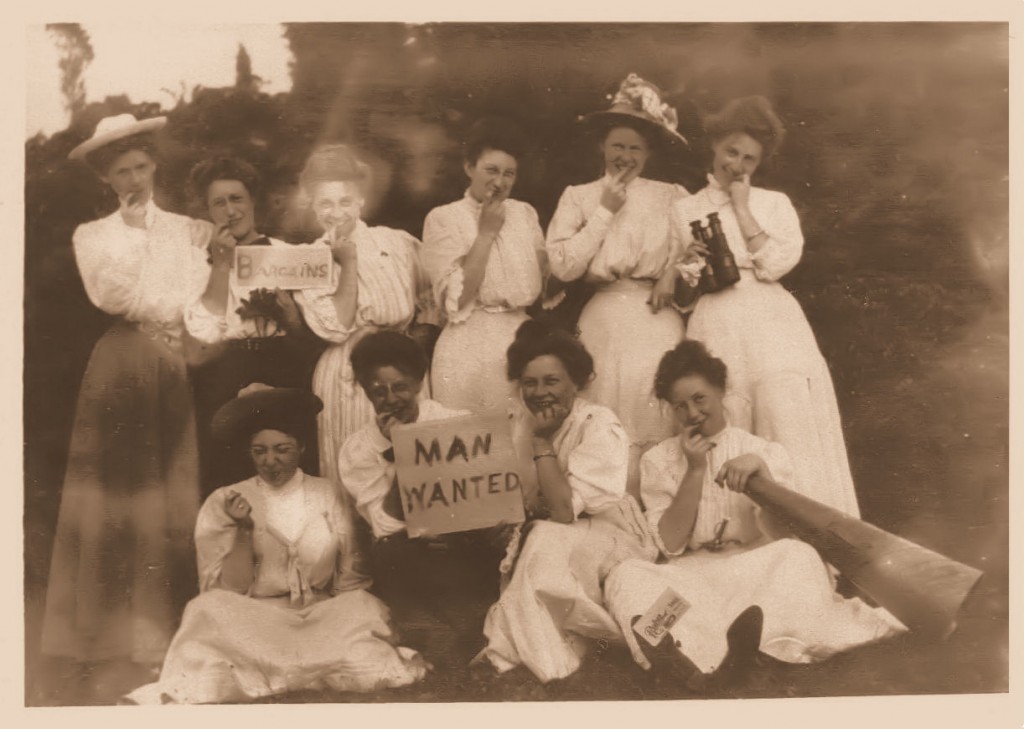These fondant fancies are baking little girls of us all
By Tanya Gold, Friday 19 October 2012 16.30 EDT
The clock is broken. Everything points backwards. It is a truism that these are, for women, conservative times. Female unemployment climbs, equal pay stalls, employment rights die, female representation sinks and, to distract us from the long slow walk back to the oven, we have a “debate” about the “morality” of abortion, which makes women feel uncertain about owning their own bodies, even if, compared to men, they own little else. (Abortion makes me sad, say some male commentators, shedding inky, self-righteous tears. Well, why not make others sadder with your more important sadness? There can be no democracy in a woman’s body.) Popular culture seeks always for coherence, and so it goes backwards too. Were the James Bond of 1962 – a grotesque punning sex addict who used to pass for charming – still alive, he would slide right into our regression. The Playboy Club is open, for martinis and caressing of tails.
Can it be coincidence, this monetised fetishisation of Happy Housewife, or is it a genuine plea for a return to the olden daze? Not everyone who makes culture is stupid: in Mad Men, Betty Draper misery-ate, and got fat and wistful. But most flee nuance when discussing women. Consider the evidence – for instance, television. (Let us ignore cinema, which is insanely binary. Men are now, on the whole, superheroes, while women are either sluts or “moms”, so there is nothing to discuss.)
Television has two stories now – the micro-fetishisation of ordinary homes and the macro-fetishisation of Downton Abbey, which is a large and desirable home, occupied by an earl and his dog, whose name I forget. The first is all about making a home that a family can live in, happily and conservatively: there are no mad wives in these attics and if there were, Kirstie Allsopp would knit them a matchbox and a noose. Except Allsopp’s charming cottage is not homemade. It is made of money.
Inside this idealised home there is a cook, ideally an amateur baker. Baking is exciting right now – is this another coincidence? As women leave the workplace in record numbers, there must be something capable of intense romanticisation to greet them as they kick off their heels and realise the ceiling really was made of glass, not sugar; something to remind them that female poverty can always be prettified, just as the countryside is prettified by people who live there only on weekends.
More than 6.5 million people watched the final of the The Great British Bake Off this week, a jump of almost 2 million viewers since the last series. Oh, it was lovely, so attuned to the New Patriotism of the jubilee and the still warm royal wedding that I expected a cake in the shape of Catherine Cambridge‘s clothing allowance. One cake celebrated the union of England with Scotland, Ireland and Wales; another a family reunion, and all were eaten at a fete among sodden bunting in the wholesome British rain.
Anyone who thinks the BBC is always progressive, and should be expunged for not rabbiting the politics of the right, should look at its lifestyle programming. The finalists were men, it is true, aching at the complexity of fondant fancies, but watch the credits. Those hands yanking cakes out of ovens and sticking raspberries on cream? Female and wearing wedding bands. In response, sales of baking goods rise, and the Women’s Institute reports 50,000 new members in the last three years, seeking Betty-esque skills to fill the hours they used to spend working and earning and living autonomous lives. Other cooking programmes sell the fantasy. Nigella Lawson used to be a newspaper columnist. Now she appears in Nigellissima, sucks her fingers, humps the fridge.
On the other side, Downton Abbey lurches on; more people watch it than Newsnight. It is currently broadcasting in more than 100 countries, which makes it our biggest cultural export after the monarchy, which feels right, because the Queen and Downton Abbey belong together. Downton Abbey was always a moan for feudalism and, three series in, it hasn’t changed. Current storylines include a prostitute giving up her child (an unfit single mother, full of self-hatred and regret) and the death of the daughter of an earl (in childbirth!) presumably as divine punishment for marrying the chauffeur. Live by transgressive sex, writes the creator (Lord Fellowes, ennobled for services to regression, 2011) – and die by it. Private Eye likes to stick coalition politicians’ heads on the Downton Abbey cast puff shots. They aren’t wrong.
Pass Fifty Shades of Grey – a woman being spanked by a billionaire, screwed by a man and a metaphor for capitalism – and so to shopping. In a double-dip recession, few businesses expand, yet Cath Kidston screams on, swelling into the abyss alongside frilly knickers, bows and frocks. She is a purveyor of goods in exploding florals. There is no corpse or coffin, no consumptive feminist movement or abortion-loving single mother that Kidston could not cheer up with her relentless happy swagging. Survey all this and what to say? We are all little girls now.
http://www.guardian.co.uk/commentisfree/2012/oct/19/little-girls-great-british-bake-off or http://bit.ly/QCHZAs
Photograph: http://www.discordia.com.au/feminism-is-not-a-dirty-word/

